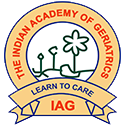Preventive health check guidelines
for Older PersonsDespite senior citizens being the major users of health care systems in all countries, routine preventive health checks are seldom done for them. There is a general lethargy and a strong belief among senior citizens they should not be a burden on family members. Also, many problems that arise after 60 years of age are attributed to ageing.
What is a preventive health check?
Preventive health check is done to identify disorders or diseases at a very early stage when there are no signs or warning about it. Older persons are likely to benefit from these checks if performed by an experienced physician.
Does doing a set of tests including scans enough?
Each individual is different and this is more so in case of senior citizens where differentiation between normal ageing and a disorder is blurred. Hence a comprehensive Geriatric assessment is required by a Geriatrician or Physician who has the necessary expertise in dealing with older people prior to performing these tests.
Secondly, tests have a chance of being falsely positive or falsely negative. It is vital that a clinician with adequate expertise decides on the required tests for a particular individual after a thorough clinical assessment. This will help the doctor to guide the patient while interpreting the test results.
What is disease prevention?
Prevention is broadly classified as primary and secondary prevention. Primary prevention is aimed at taking measures to prevent an event. A common example is taking medications regularly for Hypertension (high blood pressure) to prevent the chance of a stroke. Secondary prevention are the measures employed after a disorder has happened in order to minimise the chance of a recurrence. In the same example if a stroke has occurred, patients are given Aspirin to reduce the chance of further strokes.
Are there any primary prevention measures that a healthy individual can take?
Yes. There is no better medicine than a healthy lifestyle for prevention of many diseases. Taking regular healthy meals and performing adequate physical activity are measures that can prevent vascular disorders such as stroke and heart attack.
Other measures include:
- Smoking cessation
- Immunisation against flu
- Simple physical activity such Brisk Walking for 30 minutes every day
- Falls prevention with Balance training, Strength training and Flexibility exercises
- Balanced diet
What are some serious illnesses that can occur in the senior citizen?
Vascular and Metabolic disorders:
Incidence of diabetes, thyroid disorders and high Blood pressure increase with age. In the initial stages many of these disorders are asymptomatic. Hence a targeted screening test will help to detect these disorders early and start appropriate treatment. In a few individuals further screening tests may be performed according to their individual risk profile for vascular events and hence a doctor’s guidance is important while choosing appropriate tests.
Cancer:
Cancer is the most serious illness after vascular disorders (stroke and heart attack). Studies done in the older subjects have shown that screening for Breast cancer is beneficial to women up to the age of 65 years. This is because of the increased life expectancy and improved quality of life due to early detection. Mammography is the screening tool and if done periodically has been proven to reduce mortality. Other less common cancers in women are cervical and ovarian cancers. There is evidence to suggest that periodic Pap smear can reduce the severity and spread of cervical cancer. However, current recommendations do not advice screening after the age of 65, as this is a slow growing cancer.
Prostrate Cancer:
Men suffer from Prostate cancer commonly after the age of 60 years. However, many of these cancers are asymptomatic and do not cause harm to patients. Routine screening for prostate cancer is debatable and many academic bodies have differing guidelines on prostate cancer screening.
Colon cancer:
Routine colon cancer screening is recommended after the age of 50 years and earlier in patients with a strong family history of colon cancer. Methods employed include stool occult blood testing, colonoscopy or sigmoidoscopy.
